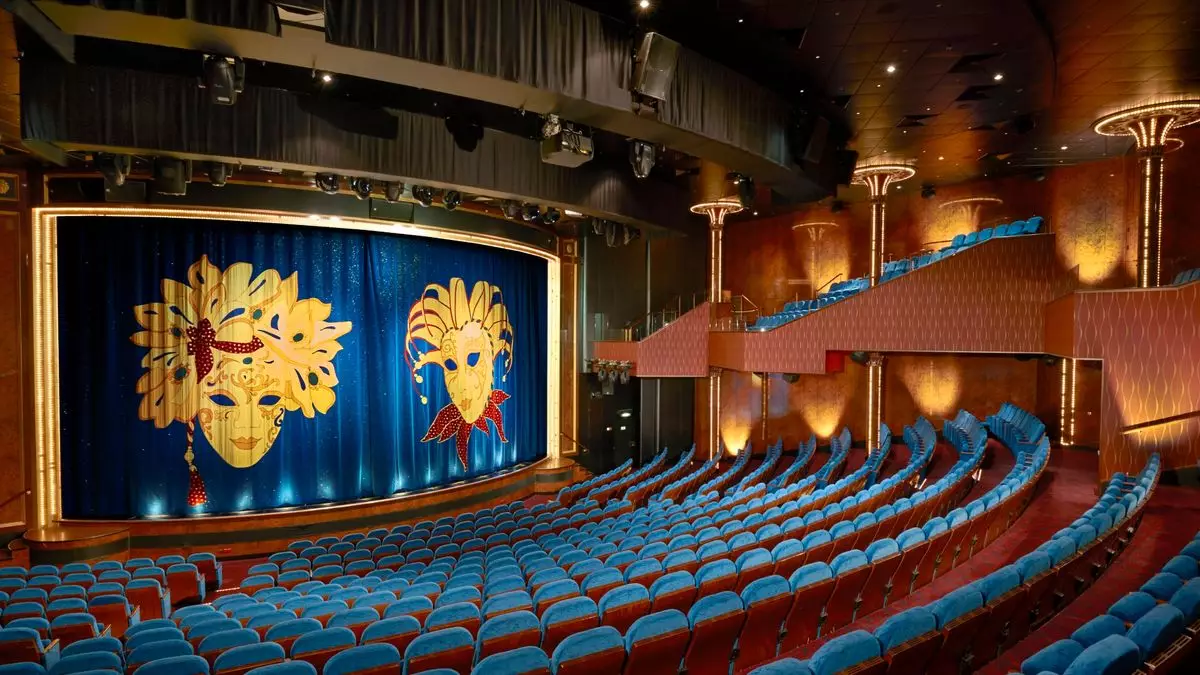The world of cruise entertainment is far from static; it evolves alongside the preferences of its audience. Recently, Norwegian Cruise Line (NCL) made headlines when it decided to retire its headline Broadway-style musical, “The Donna Summer Musical.” Debuting aboard the Norwegian Prima in August 2022, the show showcased NCL’s ambition to deliver extensive entertainment akin to that found on Broadway. However, just two years later, CEO Harry Sommer announced a strategic shift in entertainment direction at the recent CruiseWorld in Fort Lauderdale, emphasizing the company’s philosophy focused on “return on experience.” This pivot suggests a deeper understanding of guest preferences, operational efficiency, and the practicality of onboard shows.
Sommer candidly discussed the numerous hurdles faced by the production of “The Donna Summer Musical.” The show’s intricate design required specialized staff, including a full-time wig master. The dependence on specific personnel resulted in operational setbacks; a single person’s illness could derail an entire performance schedule. As Sommer noted, the company determined that such complications were unsustainable. The goal moving forward is to present entertainment options that are capable of thriving even if a cast member is unavailable. This lesson underscores a crucial aspect of NCL’s new direction: ensuring consistent entertainment availability for guests.
While NCL once passionately pursued bringing Broadway shows onto its ships, data now indicates this strategy has not resonated as anticipated with guests. Sommer revealed that customer satisfaction scores showed a marked preference for shorter, more dynamic in-house productions over longer Broadway-style performances. Remarkably, guest feedback suggested that theatre time should be cut to around 30 to 40 minutes, allowing cruisers to enjoy various onboard offerings, including casinos, dining, and other entertainment.
This pivot away from lengthy performances may be more aligned with the broader onboarding experience that guests seek. After all, a cruise is packed with activities, and guests often prefer to dip in and out of entertainment rather than sitting for extended periods. This approach highlights the importance of creating diverse and engaging experiences that align with the cruise lifestyle.
The experience of competitors in the industry further validates NCL’s new path. For example, Royal Caribbean’s “We Will Rock You,” based on the music of Queen, has been criticized for its drawn-out narrative and pacing, which detracted from the overall audience experience. Many cruise attendees might enjoy the music but find the prolonged length stifling, underscoring a universal desire for more engaging entertainment. NCL’s decision to offer shorter, lively productions could serve as a straw against such complaints, fostering an environment where guest satisfaction could thrive.
Despite the downtime for shows like “Kinky Boots,” “Six,” and “Footloose,” NCL still showcases shorter Broadway adaptations when feasible, like “Beetlejuice” on the Norwegian Viva. The presence of famed productions like “Jersey Boys” indicates a balanced approach that acknowledges both market demand and operational capacity. NCL appears to be deliberately iterative in refining its entertainment offerings.
The takeaway from NCL’s experiences is clear: the demand for engaging, efficient entertainment necessitates a rethinking of convention. The company’s strategic overhaul promises to not only enhance the variety of entertainment options but also significantly optimize operational costs. With Sommer’s revelation that their highest-rated entertainment correlates with the lowest production costs, it becomes evident that achieving guest satisfaction and financial prudence can indeed go hand in hand.
The restructuring of entertainment at NCL is an instructive reminder that adapting to client preferences is essential. By embracing a blend of shorter, innovative shows and removing the cumbersome constraints of traditional Broadway productions, the cruise line is positioning itself to enhance its overall cruise experience. As the industry continues to evolve, it will be vital for cruise lines to remain agile, ensuring they listen to and prioritize the desires of their onboard guests, ultimately enhancing the cruise experience while maintaining operational efficiencies.


Leave a Reply